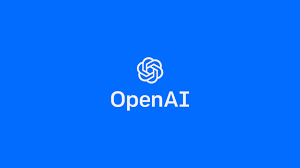OpenAI has announced its participation in the Coalition for Content Provenance and Authenticity (C2PA) steering committee, signalling its commitment to bolstering transparency around generated content. The initiative aims to certify digital content with metadata, providing insights into its origins, whether entirely AI-generated, AI-edited, or captured conventionally.
Already, OpenAI has begun integrating C2PA metadata into images produced by its latest DALL-E 3 model output in ChatGPT and the OpenAI API. This metadata will also be incorporated into OpenAI’s forthcoming video generation model, Sora, upon its broader release.
The rationale behind this move is to combat concerns about the potential misuse of AI-generated content, particularly in influencing public opinion during major elections. By authenticating AI-created media, the initiative seeks to mitigate the spread of deepfakes and manipulated content, thereby addressing disinformation campaigns.
While technical solutions are crucial, OpenAI acknowledges that ensuring content authenticity necessitates collective action from platforms, creators, and content handlers to preserve metadata for end consumers.
More Details on the OpenAI Content Transparency Boost
In addition to C2PA integration, OpenAI is actively developing new provenance methods, such as tamper-resistant watermarking for audio and image detection classifiers designed to identify AI-generated visuals.
Furthermore, OpenAI has initiated applications for access to its DALL-E 3 image detection classifier through its Researcher Access Program. The tool assesses the likelihood that an image originates from one of OpenAI’s models, facilitating independent research on its effectiveness and real-world application.
Internal testing of the classifier has demonstrated high accuracy in distinguishing non-AI images from DALL-E 3 visuals, with an impressive 98% of DALL-E images correctly identified and less than 0.5% of non-AI images incorrectly flagged. However, distinguishing between images produced by DALL-E and other generative AI models presents more significant challenges.
Additionally, OpenAI has implemented watermarking into its Voice Engine custom voice model, currently available in a limited preview. The company anticipates that increased adoption of provenance standards will result in metadata accompanying content throughout its lifecycle, addressing a critical gap in digital content authenticity practices.
In parallel with its provenance efforts, OpenAI is collaborating with Microsoft to launch a $2 million societal resilience fund aimed at supporting AI education and understanding. This initiative underscores the importance of collective action in promoting content authenticity and transparency online.
In conclusion, OpenAI emphasises the need for industry-wide collaboration and knowledge sharing to advance research and development in this area. By working together, stakeholders can enhance their understanding of content provenance and promote transparency in the digital realm.


















